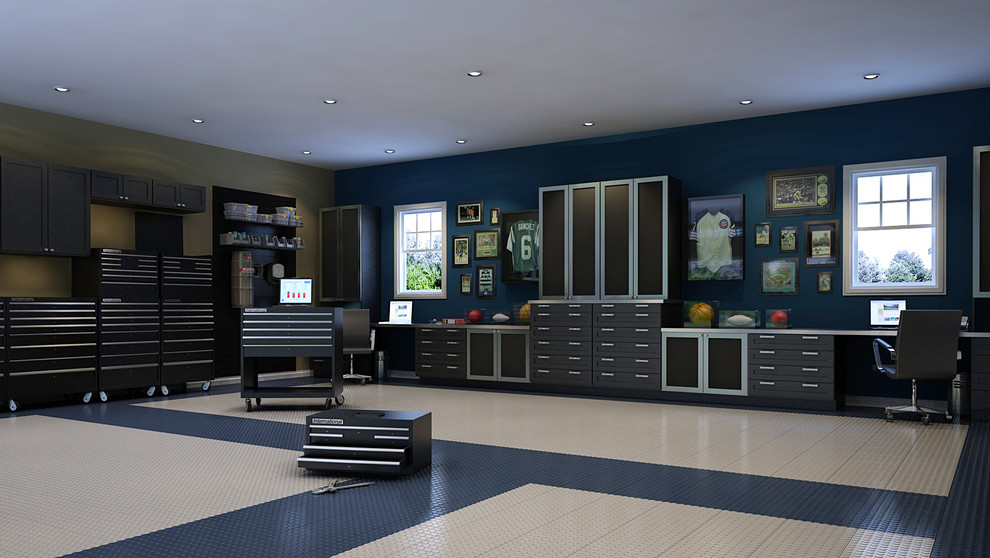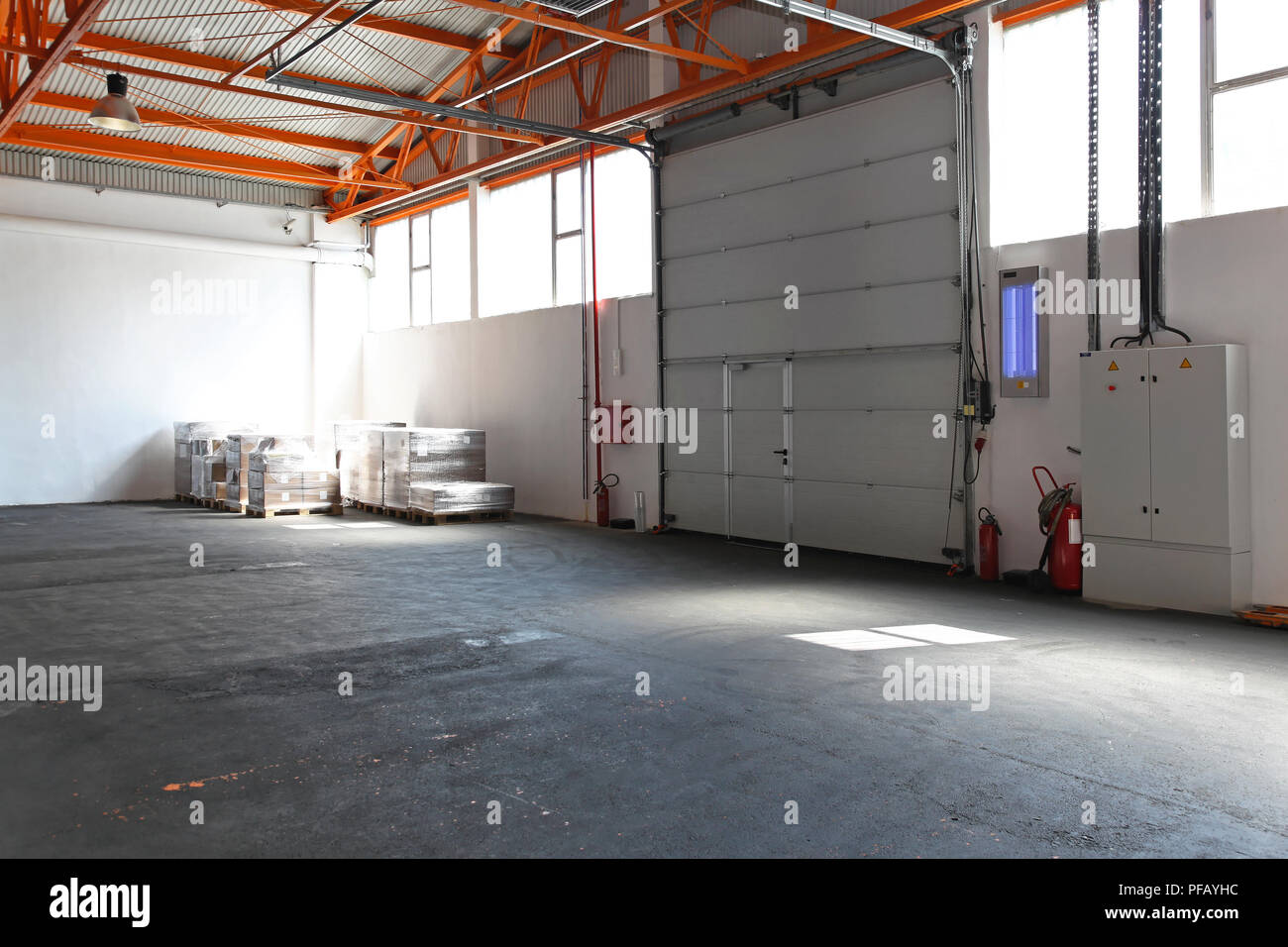When it comes to transforming unused spaces into something extraordinary, a garage factory conversion might just be the answer you've been looking for. Imagine taking that old, dusty garage and turning it into a fully functional workspace or even a mini manufacturing hub. It's not just about creating more space—it's about creating value. Whether you're a small business owner, a DIY enthusiast, or someone looking to increase your property's appeal, garage factory conversions are gaining traction, and for good reason.
Now, before we dive deep into the world of garage factories, let's get one thing straight: this isn't your average home improvement project. A garage factory conversion is all about thinking outside the box—or in this case, inside the garage. It’s about maximizing every inch of space and turning it into something productive. Think about it: you could be sitting on a goldmine without even realizing it.
And here's the kicker—garage factories aren’t just for industrial purposes anymore. They’ve evolved into versatile spaces that can cater to a wide range of needs. From home gyms to creative studios, the possibilities are endless. So, buckle up because we’re about to take you on a journey through the ins and outs of garage factory conversions, and trust me, it’s gonna be a wild ride.
Read also:Mean Joe Greene The Legendary Nfl Player And His Impact On Football
Understanding the Garage Factory Concept
What Exactly is a Garage Factory?
Let's break it down. A garage factory is essentially a space where creativity meets functionality. Picture this: your garage, once a place to park your car, is now a hub of activity. It could be a workshop where you build custom furniture, a space where you assemble products, or even a mini production line for your small business. The concept revolves around repurposing an existing structure to serve a new, more productive purpose.
But here's the thing: garage factories aren’t just about functionality. They’re also about efficiency. By converting your garage into a factory, you're not only creating a workspace but also streamlining your operations. No more renting expensive commercial spaces—everything you need is right there, under one roof. And let’s be honest, who doesn’t love the idea of cutting costs while boosting productivity?
Why Garage Factories Are Gaining Popularity
If you've been keeping up with the latest trends in home improvement and entrepreneurship, you've probably noticed that garage factory conversions are all the rage. But why? Well, for starters, it’s all about adaptability. In a world where remote work and small-scale production are becoming the norm, having a dedicated space at home makes perfect sense.
Plus, there's the financial aspect. Converting your garage into a factory can significantly boost your property’s value. Think about it: potential buyers will see it as an added bonus—a space that can be used for a variety of purposes. And if you’re planning to stay put, you’ll have a space that not only serves your needs but also adds to your home’s overall appeal.
And let's not forget the environmental benefits. By repurposing an existing structure, you’re reducing your carbon footprint. It’s a win-win situation—good for your wallet and good for the planet.
The Benefits of a Garage Factory Conversion
Boosting Productivity
One of the biggest advantages of a garage factory is the boost it gives to productivity. Imagine having a dedicated space where everything you need is within reach. No more running back and forth between different locations—your tools, materials, and equipment are all in one place. This not only saves time but also increases efficiency.
Read also:Christina Schwarzenegger The Woman Who Embraces Strength And Grace
Plus, a well-organized garage factory can help you stay focused. With a designated workspace, you’re less likely to get distracted by household chores or other interruptions. And let’s face it, a clutter-free environment is always more conducive to getting things done.
Cost-Effective Solution
Let’s talk money. Converting your garage into a factory is a cost-effective solution for several reasons. First, you’re already working with an existing structure, which means fewer construction costs. Second, you’re avoiding the hefty price tag that comes with renting commercial space. And third, you’re potentially increasing your property’s value, which is always a good investment.
But here’s the real kicker: a garage factory can help you save money in the long run. By having a dedicated workspace at home, you can cut down on commuting costs, reduce the need for expensive storage solutions, and even lower your utility bills. It’s like getting three solutions in one!
Environmental Impact
Let’s talk green. Converting your garage into a factory is not only good for your wallet but also for the planet. By repurposing an existing structure, you’re reducing the need for new construction materials, which in turn reduces waste. Plus, you’re minimizing your carbon footprint by avoiding the need for long commutes to a commercial workspace.
And if you’re really serious about going green, you can take things a step further by incorporating eco-friendly features into your garage factory. Think solar panels, energy-efficient lighting, and sustainable materials. It’s all about making smart choices that benefit both you and the environment.
Planning Your Garage Factory Conversion
Assessing Your Needs
Before you dive headfirst into your garage factory conversion, it’s important to assess your needs. What exactly do you plan to use the space for? Are you setting up a workshop, a production line, or something else entirely? Understanding your requirements will help you create a space that’s tailored to your specific needs.
Here are a few questions to consider:
- What kind of equipment will you need?
- How much storage space do you require?
- Will you need to accommodate multiple people?
- What kind of utilities will you need (electricity, water, ventilation)?
Taking the time to answer these questions will ensure that your garage factory is not only functional but also efficient.
Designing the Space
Once you’ve assessed your needs, it’s time to start designing your space. This is where the fun begins! Think about the layout—where will your workstations be? How will you organize your tools and materials? What kind of lighting and ventilation will you need?
And don’t forget about aesthetics. Just because it’s a workspace doesn’t mean it has to be boring. You can incorporate elements that reflect your personal style, from colorful walls to unique storage solutions. The goal is to create a space that’s not only functional but also inspiring.
Choosing the Right Materials
When it comes to materials, the options are endless. But here’s the thing: not all materials are created equal. You’ll want to choose materials that are durable, easy to maintain, and suited to your specific needs. For example, if you’re setting up a workshop, you’ll want materials that can withstand heavy use and potential spills.
Some popular choices for garage factory conversions include:
- Concrete flooring for durability
- Steel shelving for strength and versatility
- Wooden workbenches for a rustic, DIY feel
- Insulated walls for temperature control
And if you’re looking to go green, consider using sustainable materials like reclaimed wood or recycled metal. It’s all about making choices that work for you and the environment.
Common Challenges and How to Overcome Them
Space Constraints
One of the most common challenges when converting a garage into a factory is space constraints. After all, garages aren’t exactly known for their spaciousness. But don’t worry—there are ways to make the most of the space you have.
Here are a few tips:
- Optimize vertical space with wall-mounted shelves and hooks.
- Invest in multi-functional furniture that serves more than one purpose.
- Use stackable storage solutions to maximize floor space.
- Consider modular designs that can be easily reconfigured as needed.
With a little creativity and planning, you can turn even the smallest garage into a productive factory.
Budget Concerns
Another common challenge is budget constraints. Converting a garage into a factory can be a significant investment, but there are ways to keep costs under control. Start by setting a realistic budget and sticking to it. Prioritize your needs and allocate funds accordingly.
Here are a few cost-saving tips:
- DIY as much as possible—there are plenty of tutorials online to help you get started.
- Shop for second-hand materials and equipment—you’d be surprised at the deals you can find.
- Focus on essential features first and add extras later if your budget allows.
- Consider phasing the project over time to spread out the costs.
With a little planning and resourcefulness, you can create a garage factory that fits your budget.
Tools and Equipment You’ll Need
Must-Have Tools
When it comes to setting up a garage factory, having the right tools is essential. Here are some must-haves to get you started:
- Power tools: drills, saws, sanders
- Hand tools: hammers, screwdrivers, wrenches
- Measuring tools: tape measures, levels, squares
- Safety gear: goggles, gloves, masks
Having these tools on hand will ensure that you’re prepared for any project that comes your way.
Choosing the Right Equipment
Equipment is another important consideration. Depending on your specific needs, you might require specialized machinery or tools. Here are a few things to keep in mind:
- Consider the size and weight of the equipment—will it fit in your space?
- Think about maintenance—how easy is it to keep the equipment in good working order?
- Look for energy-efficient options to reduce your utility bills.
- Choose equipment that’s versatile and can be used for multiple purposes.
By choosing the right equipment, you’ll ensure that your garage factory is both functional and efficient.
Maximizing Efficiency in Your Garage Factory
Organizing Your Space
Organization is key to maximizing efficiency in your garage factory. A cluttered workspace can lead to wasted time and decreased productivity. Here are a few tips to keep your space organized:
- Label everything—this will make it easier to find what you need when you need it.
- Use color-coded systems to categorize tools and materials.
- Implement a “place for everything and everything in its place” policy.
- Regularly declutter—get rid of anything you no longer need or use.
By keeping your space organized, you’ll save time and increase productivity.
Implementing Workflow Strategies
Workflow strategies can also help you maximize efficiency. By streamlining your processes, you can reduce downtime and increase output. Here are a few strategies to consider:
- Create a production schedule to keep things on track.
- Set up assembly lines to speed up production.
- Use technology to automate repetitive tasks.
- Regularly review and refine your processes to ensure they’re working effectively.
With the right strategies in place, your garage factory can become a well-oiled machine.
Legal and Safety Considerations
Permits and Regulations
Before you start your garage factory conversion, it’s important to check local permits and regulations. Depending on where you live, you may need to obtain certain permits or meet specific building codes. This is especially important if you’re making structural changes or adding utilities like electricity or plumbing.
Here are a few things to keep in mind:
- Check with your local government for any required permits or inspections.
- Ensure that your plans comply with building codes and safety standards.
- Consider hiring a professional to review your plans and ensure compliance.
By following the rules, you’ll avoid potential headaches down the road.
Safety Measures
Safety should always be a top priority in any workspace, and your garage factory is no exception. Here are a few safety measures to implement:
- Install proper lighting to reduce the risk of accidents.
- Ensure that all equipment is properly grounded and maintained.
- Keep fire extinguishers and first aid kits readily available.
- Implement safety protocols and train all users on proper procedures.
By prioritizing safety, you’ll create a workspace that’s not only productive but also secure.
Final Thoughts: Is a Garage Factory Right for You?
So, is a garage factory conversion the right choice for you? If


